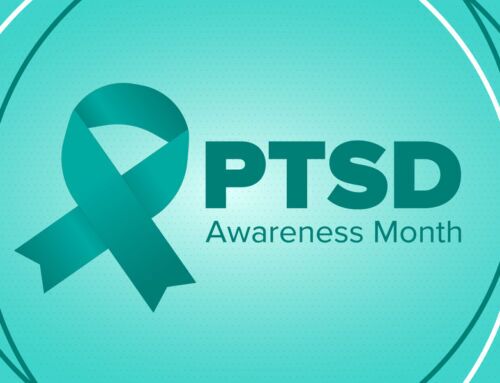Dual diagnosis stands out as a critical, yet often misunderstood, condition that affects a significant portion of the population, including many veterans. Dual diagnosis refers to the co-occurrence of substance use disorders (SUDs) and mental health issues within the same individual. This intricate relationship between mental health and substance use presents unique challenges in both diagnosis and treatment, demanding an integrated approach to address the intertwined issues effectively.
Understanding Dual Diagnosis
At the heart of dual diagnosis is the recognition that mental health disorders and substance use disorders are not isolated conditions. They are deeply interconnected, with each potentially influencing the onset and course of the other. In fact, people who are dealing with mental illness are more likely to experience a substance use disorder than those not affected by a mental illness. According to SAMHSA’s 2022 National Survey on Drug Use and Health, approximately 21.5 million adults in the United States have a co-occurring disorder. Some of the most common mental disorders seen in SUD treatment include:
- Anxiety and mood disorders
- Schizophrenia
- Bipolar disorder
- Major depressive disorder
- Conduct disorders
- Post-traumatic stress disorder (PTSD)
- Attention deficit hyperactivity disorder (ADHD)
Individuals being treated for mental health concerns also often misuse the following types of substances:
- Alcohol
- Tobacco
- Opioids
- Stimulants
- Marijuana
- Hallucinogens
- Prescription drugs
The complexity of dual diagnosis can be especially evident among military veterans, a group that is often disproportionately affected by dual diagnosis. The rigorous demands of military service, coupled with the trauma of combat, the physical trauma of injury, and the challenges of reintegration into civilian life, can lead to a heightened risk of both mental health disorders and substance use as coping mechanisms.
Recent data reveals that 4 in 10 veterans with a substance use disorder struggle with illicit drugs, while 7 in 10 grapple with alcohol use, and 1 in 8 contend with both. The National Survey on Drug Use and Health (NSDUH) in 2020 further highlighted that 26.2% of veterans had a mental illness and/or substance use disorder, underlining the prevalence of dual diagnosis within this population.
The Importance of Integrated Treatment For Dual Diagnosis for Veterans
The dual nature of this diagnosis necessitates a comprehensive treatment approach that addresses both the mental health disorder and the substance use disorder simultaneously. Traditional treatment methods that focus on one condition at the expense of the other are often inadequate and can lead to a cycle of recovery and relapse. Integrated treatment models, which offer coordinated care for both conditions, have emerged as the gold standard for dual diagnosis treatment.
Greenbranch Recovery in New Jersey exemplifies this approach, offering specialized care for veterans facing dual diagnosis. Our programs include SUD Primary Partial Care and Intensive Outpatient Care, designed to facilitate healing and recovery from both mental health issues and substance use. Our treatment modalities are diverse and tailored to meet the unique needs of each individual, encompassing:

- Trauma-Informed Care: Acknowledging the role of trauma in both mental health and substance use, our approach integrates an understanding of trauma into all aspects of treatment, creating a safe environment for recovery.
- Medication-Assisted Treatment (MAT): MAT combines medication with counseling and behavioral therapies to treat substance use disorders, reducing withdrawal symptoms and curbing cravings.
- Therapy for Post-Traumatic Stress Disorder (PTSD): Specialized therapies for PTSD are crucial for many veterans, addressing the root causes of trauma that contribute to substance use and mental health issues.
- Anger Management Counseling: This helps individuals develop healthy coping mechanisms for anger, a common emotion that can exacerbate substance use and mental health problems.
- Group Therapy and Individual Therapy: Both group and individual therapy sessions provide support and allow for the exploration of underlying issues contributing to dual diagnosis.
The Healing Journey for Veterans
Navigating the healing journey for veterans with dual diagnosis requires a nuanced understanding of both the visible and invisible scars of service. Military service, especially combat, often leaves profound psychological impacts, with many veterans carrying burdens that are not immediately apparent to the outside observer. The transition back to civilian life can sometimes amplify these challenges, as veterans may feel disconnected from their civilian counterparts who may not fully understand their experiences or the depth of their struggles.
Recognizing this, treatment programs designed for veterans place a significant emphasis on creating a supportive community that mirrors the camaraderie found in the military. This approach not only aids in the healing process but also helps veterans rebuild the sense of belonging and purpose that was a cornerstone of their military lives.
Moreover, the journey towards recovery for veterans with dual diagnosis is marked by an individualized treatment plan that accounts for the complexity of each veteran’s experience. This includes addressing specific triggers and stressors unique to military service, such as combat trauma, loss of comrades, or the challenge of reintegrating into civilian society.
Effective treatment must go beyond the symptoms and seek to understand the veteran’s entire story, tailoring interventions that honor their service and sacrifice.

There Is Help For Dual Diagnosis
The interplay between mental health and substance use in the context of dual diagnosis presents significant challenges, but also opportunities for integrated, effective treatment. For veterans, who may face unique triggers and stressors related to their service, specialized programs that understand and address these complexities are vital. At Greenbranch Recovery, our commitment to providing trauma-informed, comprehensive care for veterans with dual diagnosis is unwavering. We believe in the strength and resilience of our veterans, and we are dedicated to supporting them on their journey to recovery and wellness.
For anyone grappling with the challenges of dual diagnosis, remember that help is available. Understanding the nature of your condition is the first step towards healing. With the right support and treatment, recovery is not just a possibility; it’s within reach. Call us at 609-622-5101 or contact us online today.






